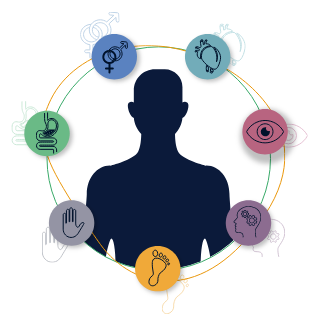The journey towards understanding ATTR and its phenotypes
Interview w. Ole Suhr and Per Westermark
Watch videoEnter keywords.
Enter keywords.

Amyloidosis Academy is only for healthcare professionals, therefore you must login to see the content.

To access the platform, please create an account.


Hereditary transthyretin (ATTRv) amyloidosis is a multi-systemic disease, which can cause symptoms in many different organs.

Learn about Red Flags, diagnostic tools, and the diverse clinical manifestations of ATTRv. Watch videos and presentations with experts.

Learn about management of ATTRv. Get access to monitoring tools for you and your patients. Watch videos and presentations with experts.
To make diagnosis and management of ATTRv easier, Alnylam has developed a range of tools for you and your patients.
The clinical manifestations of ATTRv are very diverse. Learn more about the Red Flag symptoms and clinical findings to look out for within neurology.
Learn moreThe clinical manifestations of ATTRv are very diverse. Learn more about the Red Flag symptoms and clinical findings to look out for within cardiology.
Learn moreThe symptom tracker helps your patients keep track of their symptoms and disease progression.
Learn moreAbout Amyloidosis Academy
Amyloidosis Academy is the Nordic go-to platform for neurologists, gastroenterologists, cardiologists and other healthcare professionals who have an interest in or play a role in diagnosing and managing patients with transthyretin amyloidosis (ATTR).
Did you know?
ATTR amyloidosis can be divided into the non-hereditary form ATTRwt amyloidosis
(wt for wild-type) and the hereditary form ATTRv amyloidosis (v for variant).
ATTRv amyloidosis used to be called hATTR (h for hereditary) and ATTRm (m for mutant) amyloidosis, but that is no longer recommended.